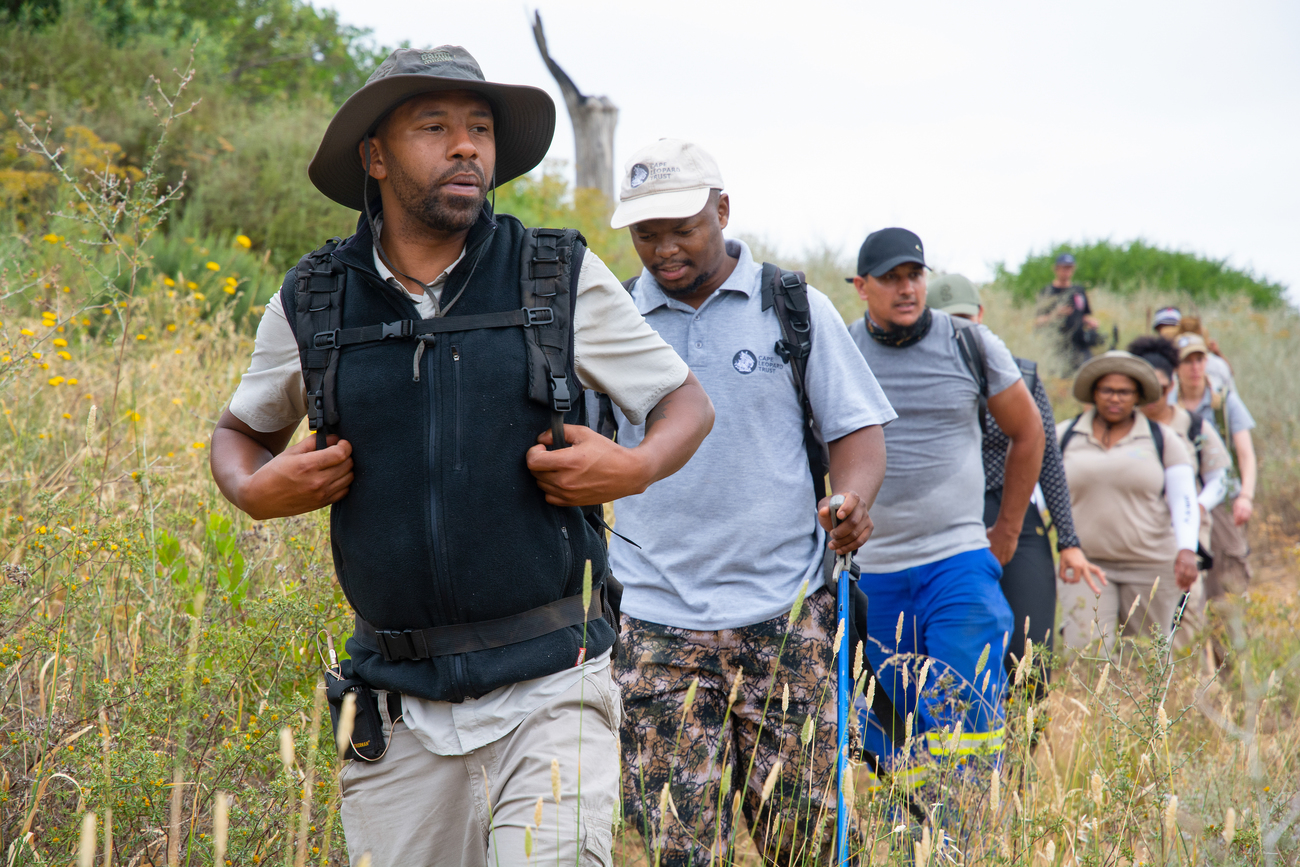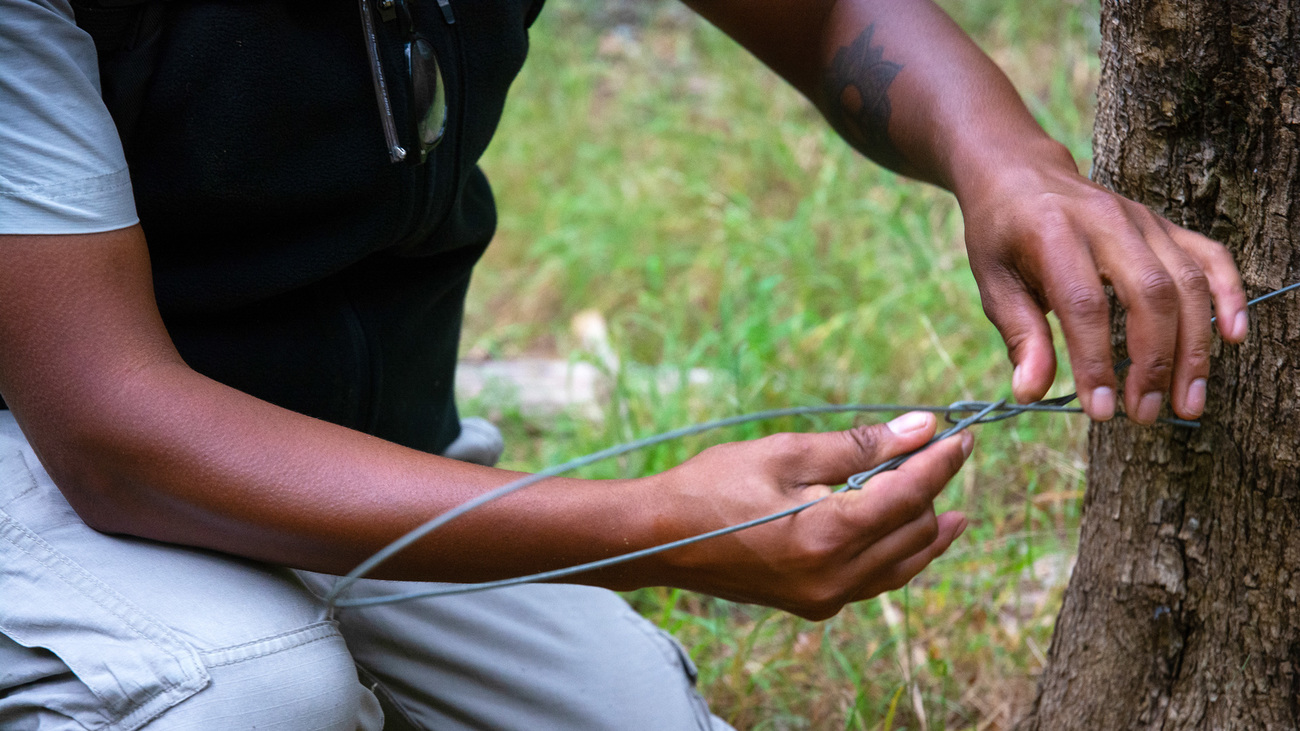Neil Greenwood
snare patrol: searching for silent killers of wildlife
snare patrol: searching for silent killers of wildlife

Few people realise that a deadly onslaught on wildlife is being waged in the unique natural environments surrounding Cape Town. The main weapons in this war are snares.
An incredibly cruel form of poaching, snares are silent and undiscerning killers. Made from any materials which can be fashioned into a noose, they are placed on animal paths. Once an animal is caught there is little chance of escape; a painful death is almost certain.
As I discovered when I joined rangers and experts from the Cape Leopard Trust, Global Conservation Force, CapeNature, and the Drakenstein Municipality Conservation Division on a snare patrol one misty morning last month, snare poaching can take place just as readily on the outskirts of a large city as it can in remote wilderness areas. On this day we were patrolling an area just minutes from Paarl, a large market town about 50 kilometres from Cape Town.
littered with snares and carcasses
By 7:30 a.m. the snare sweep was heading up the steep, rocky flank of Paarl Mountain, which is home to indigenous species like rock hyrax, small antelope like Cape duiker, Cape grysbok, and klipspringer, porcupines, baboons, caracals (a species of wild cat), and every once in a while a roaming leopard.
The patrol was hard going as the eyes of rangers and experts combed the dense bush, finding and removing a total of 29 snares in an area no greater than five square kilometres.

Tragically, later than morning, a second sweep of bushland adjacent to a nearby commercial vineyard found four carcasses—three of them Cape duiker and one Cape grysbok (all small antelope)—trapped in a snare-infested area of bush not more than 500 square metres.
excruciating injuries, senseless deaths
In early 2022 a leopard—classified as Vulnerable by the IUCN—that used Paarl Mountain Nature Reserve as part of its home range, was found killed by a snare. A number of caracals in the wider Winelands region have met a similar fate.
Private property including farmland and the Cape’s famous vineyards often border protected areas. This is the case at Klein Landskroon Equestrian Centre, which borders the Paarl Mountain Nature Reserve, where owners recently found a Cape duiker caught in a snare and the family dog was badly injured after being trapped twice in snares on their property. The dog’s anguished yowls saved his life.
A survey conducted by the Cape Leopard Trust in the Western Cape in 2017/18 found that most animals are trapped for bushmeat although some are snared for their skins and—rarely—for use in traditional medicine.
What is even more tragic is that snares are often unchecked once set, resulting in the senseless death of wildlife that is never consumed or utilized. What we saw on patrol were lives snuffed out in the cruelest possible way and simply left to rot.
swift action needed
The source of materials to construct these snares is in abundant supply and include old farm fences which have fallen into disrepair to be replaced with new ones without safely disposing of the old wire. Staves and supports to hold up the grapevines, bailing twine used to secure bales of hayTall of these make effective snares. The availability of materials was astonishing to see and contributes towards the abundance of snares found.
What is clear is that time is not a commodity at our disposal. The snare sweep we participated in was only one of 17 that were held close to Cape Town over the course of one month. In total, 165 snares were found and destroyed.
We are in a race against the clock to save impacted wildlife. To do this, IFAW has partnered with the Cape Leopard Trust to support them in their work on predator conservation, to find solutions to human-wildlife conflict, and reduce illegal killing of wildlife.
Together, we are setting up a veterinary response strategy for the Western Cape Province to work with government, landowners and conservation agencies to quickly respond to and rescue wildlife caught in snares, provide care and treatment, and save lives.
Related content
Our work can’t get done without you. Please give what you can to help animals thrive.